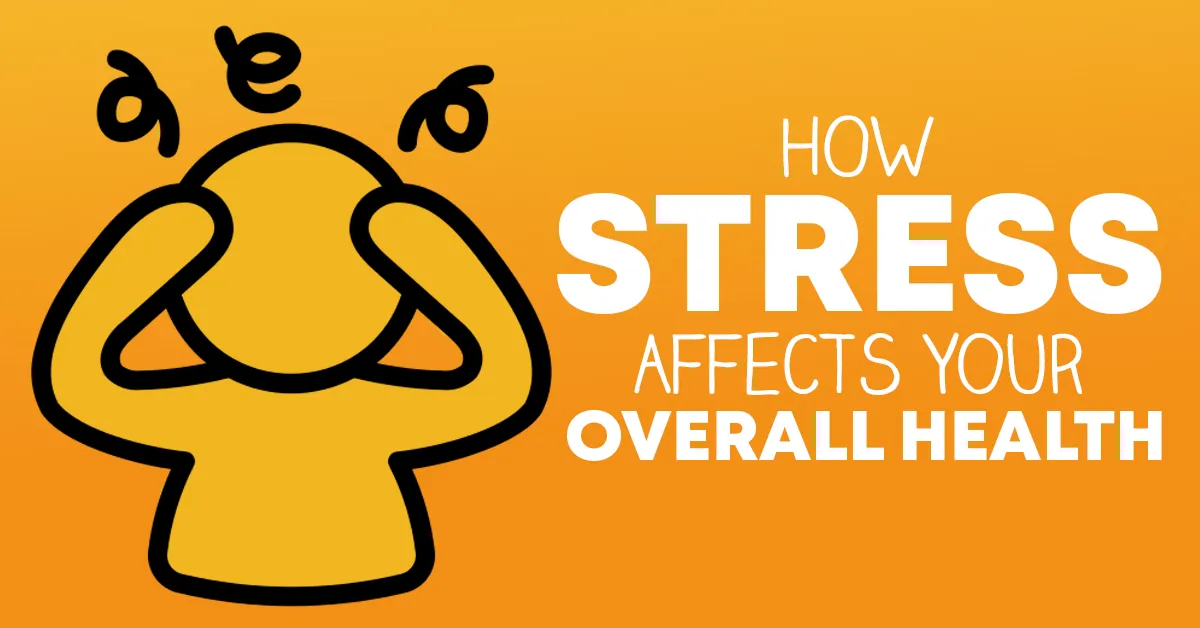Different things cause different people stress. While it is not the same for everyone, stress can impact more than just your thinking – it can put a toll on your overall health.
The influence of stress, particularly chronic stress (long-term) can have a profound physical impact on your body as well.
The body’s immediate reaction to stress
When a stressful situation is identified, our initial reaction is in the form of a fight or flight response. It’s human nature to have your hands start to sweat or your heart rate increase when faced with a difficult situation.
While this can temporarily elevate your blood pressure and heart rate, this reaction is brief and fades quickly in most individuals. However, when you are unable to resolve the stressful situation quickly, you find yourself trapped in this state of elevated response.
Common physical symptoms caused by stress
- Headache
- Muscle tension or muscle pain
- Chest pain
- Fatigue
- Sleep complications resulting in drowsiness
Source: Mayo Clinic
What can long-term stress do?
Short-term stress has actually been connected to improved memory and an increased degree of alertness (at least in animal studies).
On the contrary, long-term stress can be dangerous. Having yourself exposed to continued long-term stress can make you a common candidate for serious health problems like heart disease, high blood pressure, diabetes, and other illnesses like depression or anxiety.
Through dieting and physical activity, we all work to lessen our risk of developing these illnesses, but stress can compromise our healthy living and still put us at risk. Working to manage your stress is just another aspect of living a healthy lifestyle.
The American Psychological Association also identifies chronic stress as a contributor to inflammation in your circulatory system. This connection would tie stress to the increased risk of heart attacks.
How to mitigate your stress
The CDC provides some basic ideas to help you cope with stress…
- Take care of yourself – eat healthy, exercise regularly, get plenty of sleep, and give yourself a break if you feel stressed.
- Discuss your problems with a parent, friend, or another trusted source.
- Avoid drugs and alcohol.
- Recognize when you need more help – know when to talk to a psychologist, social worker, or counselor if things continue.
A big point for many of us to ponder: think about what you can and can not control. Oftentimes these things we have no control over are what causes us the greatest amount of stress. When you do not have control, let go – find something relaxing to do to take your mind off the stress. You can only control what you can control.


